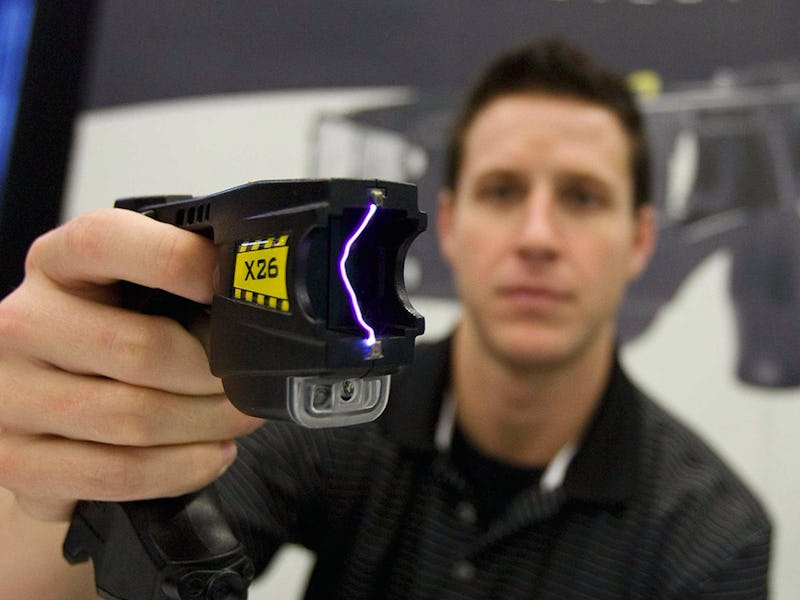Director of Taser Documentary Not Shocked by Planted Negative Reviews
Employees of Taser are made after planting negative reviews of unsparing documentary.

Most critics are cheering Nick Berardini’s Killing Them Safely, a documentary that peals apart the Taser corporation’s claims that its stun guns are “less than lethal” alternatives to armed law enforcement. The film has an 89 percent fresh rating on Rotten Tomatoes with only one in nine critics panning it. Yet on iTunes, where the film is still getting a positive response, there’s a vocal contingent insulting the film as “horrible,” “dull,” and a “waste of time.”
What could they have in common? Those bad reviews are written by Taser employees.
Because the employees are at least mostly signing off on their bad reviews using their real names, it’s been easy for Berardini and producer Jamie Gonçalves to call out on Twitter.
“I’m not surprised at at all,” Berardini tells Inverse. “They’ve responded to certain articles by calling me a conspiracy theorist and claiming they never called Taser non-lethal. They’re response is so aggressive without even seeing the film. They don’t want to question their own decision making is why they haven’t seen it.”
Here are a few reviews:
In Berardini’s view, the response is symptomatic of the denial he claims Taser reps in the film make, as the company struggles to maintain a tight grip on less-lethal options for law enforcement.
Steve Tuttle, a founding member of Taser, interviewed for the documentary, tells Inverse the company would not dictate to employees whether or not they should review the film, saying Taser hired “passionate people.”
“They’re not hiding, they’re being honest about who they are,” Tuttle says. “Do you need to say if you work at a rival game company if you review Candy Crush? My mouse hovers over a lot of these five-star reviews and they’re Columbia journalism students. Why are only they allowed a valid opinion? Are they fans of this movie or Nick?
“How it’s even become a story is beyond me.”
Berardini says officers compensated by Taser to train police have ignored legitimate health and safety concerns plugging the weapons and that Taser’s strangle-hold on the literature surrounding their device has led to a legion of poorly informed cops using the gun in situations they might not otherwise if they had a better idea of how much harm it could do.
“The film is not about undermining the idea of Tasers,” Berardini says. “It’s not about the weapon — we acknowledge this is a legitimately good idea. It’s about how it corrupts them, and them going from having the initial idea of the weapon to the money being so great it makes them dangerous. There was a period they were desperate to stay in business. That set them on a path, a shortcut, where now they always choose their own self interest above that of cops and the public.”
Tasers are increasingly popular among law enforcement, with North Dakota police going so far as to operate a drone with Tasers in August. Meanwhile, more and more people are questioning their safety. A November study in British Medical Journal found the guns resulted in skin burns, injuries to muscles, joints, and tendons, seizures, and even death.
Tuttle said since filming he had attempted to direct Berardini to “independent” reports on Taser products without a response and accused him of biased filmmaking.
“What they’ve done is try and stack this with their own biased reviews. We’ve never hid here,” he says. “I’ve had the 60 Minutes crew here, we invited them in, and it’s not like we’re trying to hide anything.”
At any rate, the trolling doesn’t seem to be hurting the film, and if anything, it’s getting them more attention with stories like this one. And the movie still has a near five-star user review rating on iTunes.